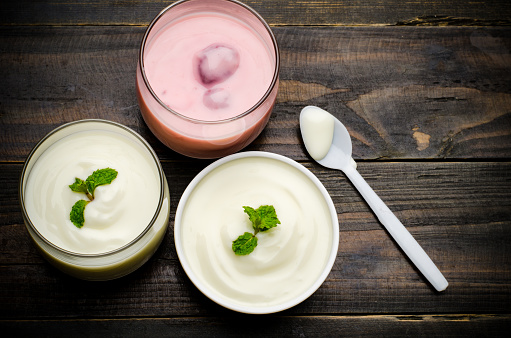
What can probiotics do for you?
Discover which foods boost your intestinal flora and protect the body.
You must have heard about them and their marvellous health benefits at some time. Probiotics are cells found naturally the body, which are also present in certain foods, such as yoghurt and kefir. However, do you understand what they can do for you?
There are 100,000 microorganisms in our bodies. Most of these are healthy bacteria or probiotics that live in the digestive tract (particularly the colon) which help us to digest food and protect our organs. This complex system is known as intestinal flora.
Probiotics are also found in food and they are very important to the correct functioning of the intestines. The World Health Organisation (WHO) recommends that the medical community make use of these foods to prevent gastrointestinal infections, allergies and some of the intestinal conditions that affect a large proportion of the population.
Benefits of probiotics
- They improve intestinal function
They can improve the functioning of the digestive system, transit and deposit because of the microorganisms they contain, by replenishing the bacteria responsible for digestion.
- They boost nutrient absorption
Probiotics colonise the intestinal flora, renewing and cleansing it so that the body can absorb more vitamins, proteins, lipids and minerals.
- They protect the body
These products have in important role in the body’s defence system, forming a barrier to protect it from harmful bacteria and strengthen the immune system.
- They treat intestinal conditions
Some studies have shown that probiotics are good for treating conditions of the small and large intestine, such as constipation, diarrhoea, gastroenteritis and flatulence. They are also recommended after a course of antibiotics, because they help to restore intestinal flora.
Which foods contain probiotics?
Some common foods which are easily available contain large amounts of probiotics. They can all contain up to 100 times more of these ‘good’ microorganisms than certain supplements, which is why it is a good idea to add them to our diets to improve intestinal health.
–Yoghurt contains lactobacilus bacteria (if it is bifidus, Bifidobacterium, too) as well as proteins that help to restore balance the intestine and protect it from germs that cause different conditions.
– Saurkraut: this fermented cabbage is a very popular German dish. It contains lactobacilus, as well as organic acids and enzymes that trigger the production of healthy bacteria.
– Miso: this basic ingredient of Japanese cuisine consists of fermented soya and is used to enhance the flavour of soups, meats and sauces. However, be careful not to boil it so as not to destroy the living enzymes, which are good for the digestion.
– Dark chocolate: when chocolate is fermented, it contains higher levels of probiotic. It also helps to neutralise free radicals (the cause of numerous diseases and ageing) thanks to the flavonoids and antioxidants that it contains.
Although these is still little evidence that these live microorganisms are of any benefit to healthy individuals, they are clearly beneficial to people with intestinal problems.
Including probiotic food in your daily diet is never harmful. To the contrary, it will strengthen and protect your health.
This post is also available in: Italian
